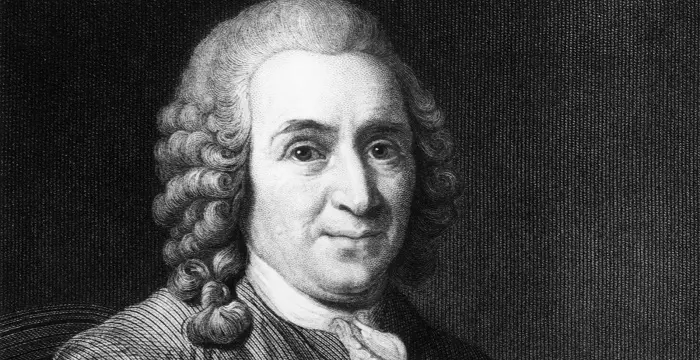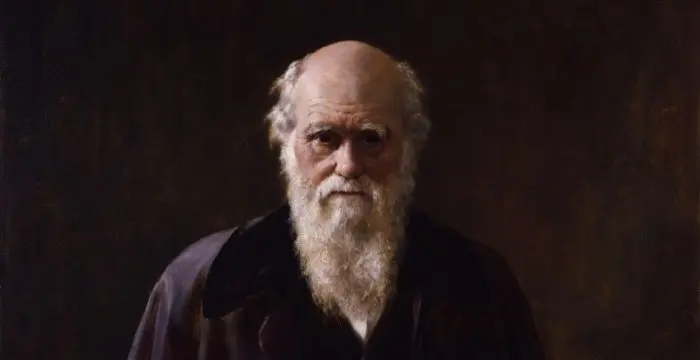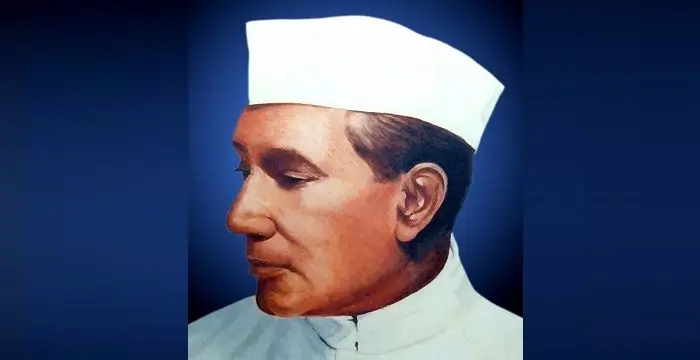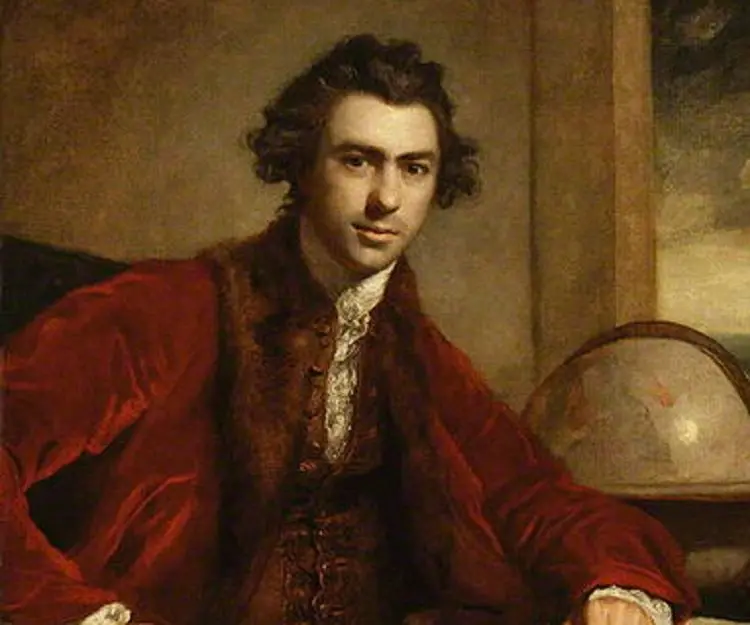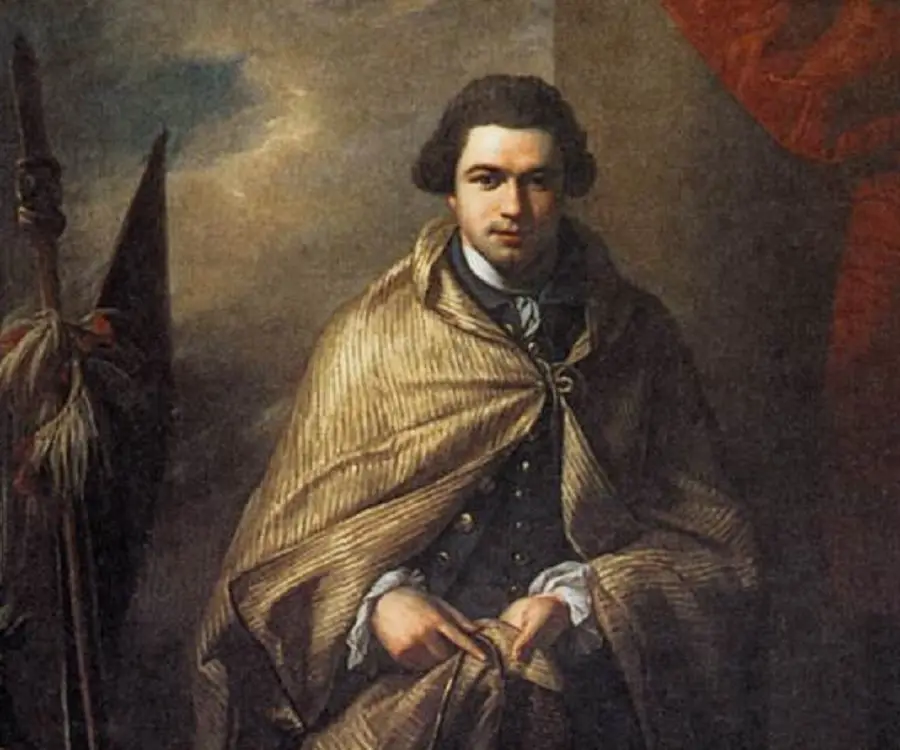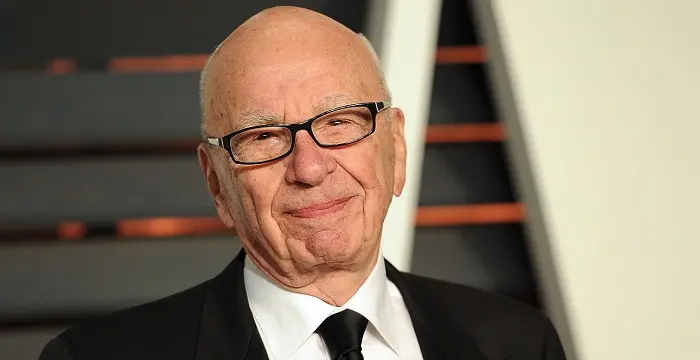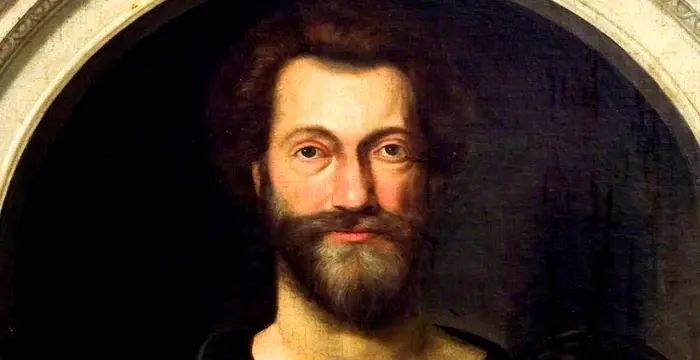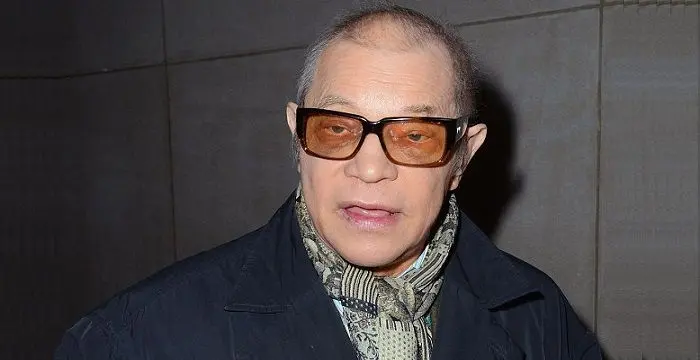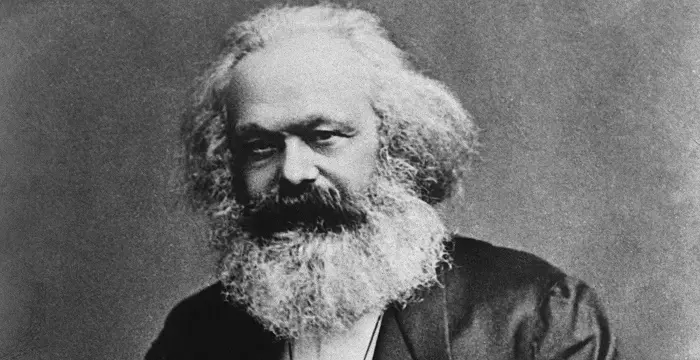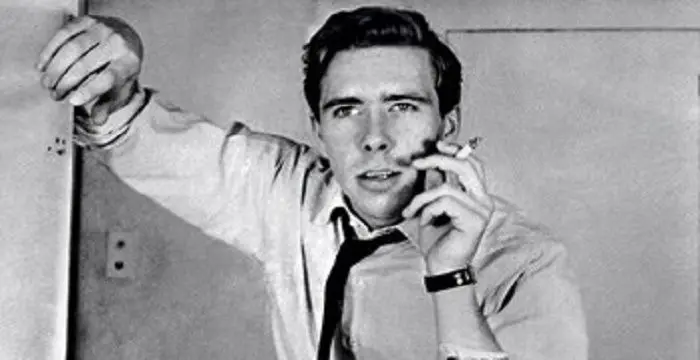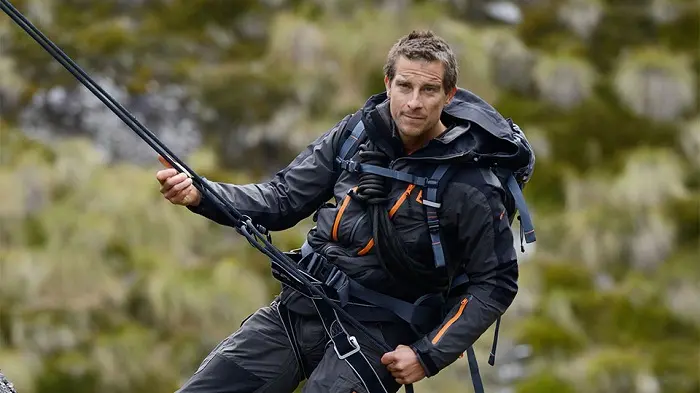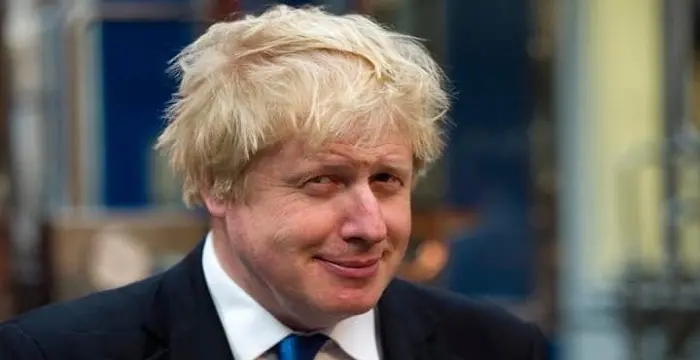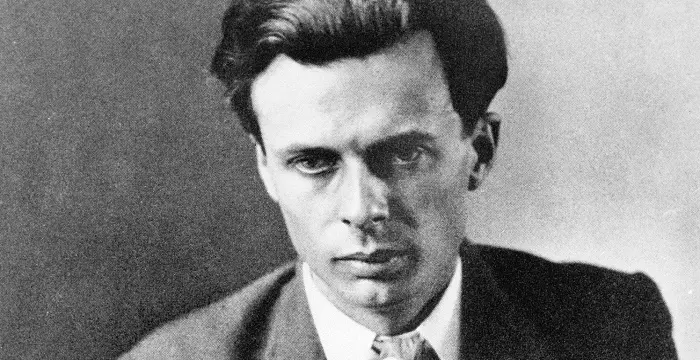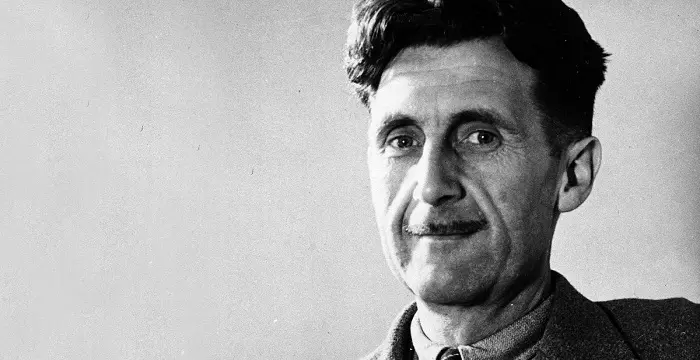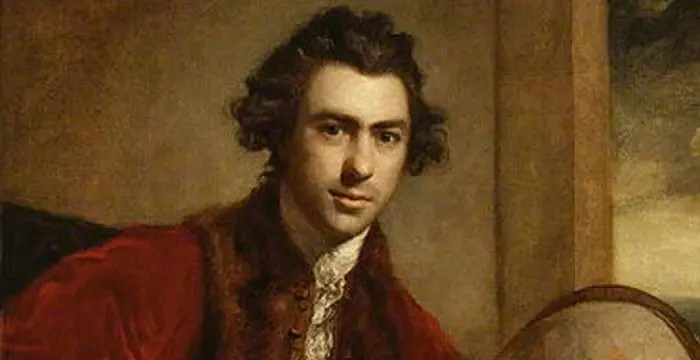
Joseph Banks - Scientists, Timeline and Childhood
Joseph Banks's Personal Details
Sir Joseph Banks was an English botanist whose work paved the way for future-botanists
| Information | Detail |
|---|---|
| Birthday | February 24, 1743 |
| Died on | June 19, 1820 |
| Nationality | British |
| Famous | Eton College, Oxford University, Scientists, Botanists |
| Siblings | Sarah Sophia Banks |
| Known as | Sir Joseph Banks, 1st Baronet |
| Universities |
|
| Notable Alumnis |
|
| Founder / Co-Founder |
|
| Birth Place | London |
| Gender | Male |
| Sun Sign | Pisces |
| Born in | London |
| Famous as | Botanist |
| Died at Age | 77 |
// Famous Botanists
Carl Linnaeus
Carolus Linnaeus was a renowned Swedish biologist popularly known as the ‘Father of Modern Taxonomy’ who founded the binomial nomenclature. Read on to know more about his childhood, career, profile and timeline
Charles Darwin
Charles Darwin was one of the most influential figures in human history. Go through this biography to get details about his life, profile and timeline.
Birbal Sahni
Birbal Sahni was an Indian palaeobotanist who founded the Birbal Sahni Institute of Palaeobotany in Lucknow. This biography of Birbal Sahni provides detailed information about his childhood, life, achievements, works & timeline.
Joseph Banks's photo
Who is Joseph Banks?
Sir Joseph Banks, 1st Baronet, GCB, PRS was an English naturalist and botanist whose work paved the way for future-botanists. His passion for botany became apparent at a young age and lasted his entire life. Born into a rich family, he craved for knowledge throughout his life. After inheriting a vast family fortune he could finally chase his passion, and went on to explore previously uncharted and unknown territories. While studying at Oxford as a gentleman-commoner he paid a Cambridge professor to come and deliver a series of lectures on botany. He embarked on a voyage with James Cook aboard the HMS Endeavour and became well-known after returning with a major collection of specimens. He became the adviser to King George III on the Royal Botanic Gardens, Kew and made the garden incomparable to any other botanical garden in the world. He also played an integral part in England’s colonization of the Australian continent and became the acknowledged authority in New South Wales. Later in his life, he was a prominent endorser and financer for travelers and scientific men and stated through his discoveries and investigations that marsupial mammals were more primitive than placental mammals. Throughout his life he received numerous fellowships and was a member of multifarious societies
// Famous Scientists
Juliane Koepcke
Juliane Koepcke is a German-Peruvian biologist, who was the lone survivor among the 92 passengers and crew of the ill-fated LANSA Flight 508 that crashed in the Peruvian rainforest on 24 December 1971. Know more about her life in this biography.
Henry Cavendish
Henry Cavendish was a theoretical chemist and physicist, renowned for discovery of hydrogen and calculation of the mass of earth. To know more about his childhood, profile, timeline and career read on
Konstantin Tsiolkovsky
Konstantin Tsiolkovsky was a Russian rocket scientist and a pioneer of astronautics. This biography provides detailed information about his childhood, family, personal life, career, achievements, etc.
Childhood & Early Life
Joseph Banks was born on February 24, 1743 in London to a wealthy family. His father was a doctor, squire of the Lincolnshire county and a member of the House of Commons.
Joseph’s initial education was in the form of private tuitions at home. In 1752 he enrolled in the Harrow School, London and then went to Eton College, Windsor in 1756.
In 1760 he entered Christ Church at Oxford University as a gentleman-commoner. After noticing there weren’t any professors to deliver lectures on botany he paid Israel Lyons, a Cambridge botanist, to do so at the university in 1764. He left the university without a degree in 1764.
His father had passed away in 1761 and left him a sizeable inheritance. After attaining the age of 21 he inherited his father’s fortunes and became a considerably wealthy individual. This enabled him to devote his leisure time to botany.
He moved to Chelsea in 1763 and there he visited the Chelsea Physic Garden and the British Museum. Gradually he made acquaintances with Daniel Solander (a Swedish naturalist) and Carl Linnaeus, and went onto become the adviser to King George III.
Career
In 1766 Joseph Banks was elected to the Royal Society and later to the Society of Antiquities. He went on the HMS Niger’s expedition to Newfoundland and Labrador and collected many species of plants and animals and recorded 34 species of birds, including the now-extinct bird species called the Great Auk.
He went along with James Cook on Cook’s first great voyage of discovery (1768–1771) aboard the HMS Endeavour to observe the transit of Venus. Banks financed the trip for Solander and Herman Sporing, a Finnish naturalist, and five others.
While traversing through Brazil, he made the first scientific description of the plant Bougainvillea. The explorers took notes and specimens of nearly 800 plants off the Australian banks which were later presented in Bank’s ‘Florilegium’.
He returned from the voyage as a famous man on July 12, 1771. However, he couldn’t find a place on Cook’s next voyage aboard the ship named Resolution pertaining to his scientific requirements.
He didn’t lose hope and lead an expedition with Solander aboard the ship Sir Lawrence to the Isle of Wight, the western islands of Scotland and Ireland. He returned with many more specimens and stored them at his house in London.
In 1773, he toured Holland with Charles Greville and visited Wales with Solander and Paul Sandby, an artist. Back home, he shifted to a bigger house to accommodate his ever-growing collection of plant specimens.
He was elected as a foreign member to the Royal Swedish Academy of Sciences in 1773 and to the Dilettante Society in 1774 where he also served as the secretary from 1778 to 1797. He became the President of the Royal Society in 1778 and held this position for over 41 years.
In 1779 he leased a 34-acre estate called the Spring Grove with a natural spring and developed it into a beautiful botanical masterpiece with the help of his numerous samples brought in from foreign lands. He became a baronet in 1781.
Joseph Banks had been serving as the king’s informal adviser on the Royal Botanic Gardens, Kew, from the past several years and this position became official in 1797. The garden housed the most exotic and awe-inspiring plants, brought over by Banks’ personally dispatched explorers and botanists from all over the world.
His fascination with Australia garnered his interest in the colonization of Australia and he was the acknowledged authority on New South Wales. He made sure that a variety of flora was exchanged between the two countries and also delivered advice on matters relating to currency, plant diseases, exploration, etc.
Major Works
Joseph Banks’ major works include his 1766 expedition to Newfoundland and Labrador along with James Cook, his development of the Royal Botanical Gardens, Kew, into an unparalleled garden and his unique position of high authority with the British government on any matter relating to the Australian continent.
Awards & Achievements
Joseph Banks was elected to the Royal Society in 1766 and he became its president in 1778; a position he held till 1820. He was an honorary founding member of the Wernerian Natural History Society of Edinburgh, a foreign member of the Royal Swedish Academy of Sciences and a foreign honorary member of the American Academy of Arts and Sciences.
Personal Life & Legacy
Joseph Banks married Dorothea Hugessen in 1779 and their marriage remained child-less.
To commemorate his efforts and findings in the field of botany around 80 plants derive their names from his name.
He passed away on June 19, 1820 at his Spring Grove House in London and was buried at St Leonard’s Church in Heston.
// Famous Oxford University
Rupert Murdoch
Rupert Murdoch is a renowned Australian business magnate famous for his establishment, ‘News Corporation’ in the US. Read on for detailed information about his childhood, profile, career and timeline
John Donne
John Donne was a famous English poet, satirist, lawyer and priest of his time. Check out this biography to know about his childhood, family life, achievements and other facts related to his life.
Michael York
Michael York is a famous English actor who has enjoyed a busy and varied career in both, television and film. Explore this biography to learn more about his profile, childhood, life and timeline.
Joseph Banks biography timelines
- // 24th Feb 1743Joseph Banks was born on February 24, 1743 in London to a wealthy family. His father was a doctor, squire of the Lincolnshire county and a member of the House of Commons.
- // 1752 To 1756Joseph’s initial education was in the form of private tuitions at home. In 1752 he enrolled in the Harrow School, London and then went to Eton College, Windsor in 1756.
- // 1760 To 1764In 1760 he entered Christ Church at Oxford University as a gentleman-commoner. After noticing there weren’t any professors to deliver lectures on botany he paid Israel Lyons, a Cambridge botanist, to do so at the university in 1764. He left the university without a degree in 1764.
- // 1761His father had passed away in 1761 and left him a sizeable inheritance. After attaining the age of 21 he inherited his father’s fortunes and became a considerably wealthy individual. This enabled him to devote his leisure time to botany.
- // 1763He moved to Chelsea in 1763 and there he visited the Chelsea Physic Garden and the British Museum. Gradually he made acquaintances with Daniel Solander (a Swedish naturalist) and Carl Linnaeus, and went onto become the adviser to King George III.
- // 1766In 1766 Joseph Banks was elected to the Royal Society and later to the Society of Antiquities. He went on the HMS Niger’s expedition to Newfoundland and Labrador and collected many species of plants and animals and recorded 34 species of birds, including the now-extinct bird species called the Great Auk.
- // 1766Joseph Banks’ major works include his 1766 expedition to Newfoundland and Labrador along with James Cook, his development of the Royal Botanical Gardens, Kew, into an unparalleled garden and his unique position of high authority with the British government on any matter relating to the Australian continent.
- // 1766 To 1820Joseph Banks was elected to the Royal Society in 1766 and he became its president in 1778; a position he held till 1820. He was an honorary founding member of the Wernerian Natural History Society of Edinburgh, a foreign member of the Royal Swedish Academy of Sciences and a foreign honorary member of the American Academy of Arts and Sciences.
- // 1768 To 1771He went along with James Cook on Cook’s first great voyage of discovery (1768–1771) aboard the HMS Endeavour to observe the transit of Venus. Banks financed the trip for Solander and Herman Sporing, a Finnish naturalist, and five others.
- // 12th Jul 1771He returned from the voyage as a famous man on July 12, 1771. However, he couldn’t find a place on Cook’s next voyage aboard the ship named Resolution pertaining to his scientific requirements.
- // 1773In 1773, he toured Holland with Charles Greville and visited Wales with Solander and Paul Sandby, an artist. Back home, he shifted to a bigger house to accommodate his ever-growing collection of plant specimens.
- // 1773 To 1797He was elected as a foreign member to the Royal Swedish Academy of Sciences in 1773 and to the Dilettante Society in 1774 where he also served as the secretary from 1778 to 1797. He became the President of the Royal Society in 1778 and held this position for over 41 years.
- // 1779 To 1781In 1779 he leased a 34-acre estate called the Spring Grove with a natural spring and developed it into a beautiful botanical masterpiece with the help of his numerous samples brought in from foreign lands. He became a baronet in 1781.
- // 1779Joseph Banks married Dorothea Hugessen in 1779 and their marriage remained child-less.
- // 1797Joseph Banks had been serving as the king’s informal adviser on the Royal Botanic Gardens, Kew, from the past several years and this position became official in 1797. The garden housed the most exotic and awe-inspiring plants, brought over by Banks’ personally dispatched explorers and botanists from all over the world.
- // 19th Jun 1820He passed away on June 19, 1820 at his Spring Grove House in London and was buried at St Leonard’s Church in Heston.
// Famous Eton College
Karl Marx
Karl Marx was a Prussian-German philosopher, revolutionary, historian and socialist whose communist ideologies and works laid the foundation for ‘Marxism’. Explore this biography to learn more about his childhood, life achievements, works & timeline.
Antony Armstrong-Jones, 1st Earl of Snowdon
Antony Armstrong-Jones was a British photographer and film-maker. Check out this biography formore information on his childhood, family, personal life, etc.
Bear Grylls
Bear Grylls is an adventurer popularly known for his bizarre survival tactics in reality television series Man vs. Wild. This biography provides detailed information about his childhood, profile, career and timeline.
Boris Johnson
Boris Johnson is a British politician who has served as the Mayor of London since 2008. This biography of Boris Johnson provides detailed information about his childhood, life, achievements, works & timeline.
Aldous Huxley
Aldous Leonard Huxley was a prominent English writer. This biography of Aldous Huxley provides detailed information about his childhood, life, works, achievements & timeline.
George Orwell
George Orwell was an English novelist, essayist, journalist and critic; he is best known for his novels ‘Animal Farm’ and ‘Nineteen Eighty-Four’. Check out this biography to know about his childhood, life, achievements, works & timeline
Joseph Banks's FAQ
What is Joseph Banks birthday?
Joseph Banks was born at 1743-02-24
When was Joseph Banks died?
Joseph Banks was died at 1820-06-19
Where was Joseph Banks died?
Joseph Banks was died in Isleworth
Which age was Joseph Banks died?
Joseph Banks was died at age 77
Where is Joseph Banks's birth place?
Joseph Banks was born in London
What is Joseph Banks nationalities?
Joseph Banks's nationalities is British
Who is Joseph Banks siblings?
Joseph Banks's siblings is Sarah Sophia Banks
What was Joseph Banks universities?
Joseph Banks studied at Eton College,Oxford University, Christ Church, Oxford, University of Oxford, Eton College, Harrow School
What was Joseph Banks notable alumnis?
Joseph Banks's notable alumnis is Eton College, Oxford University
Which company or organization was founded by Joseph Banks?
Joseph Banks was the founder/co-founder of African Association, Royal Horticultural Society
What is Joseph Banks's sun sign?
Joseph Banks is Pisces
How famous is Joseph Banks?
Joseph Banks is famouse as Botanist
